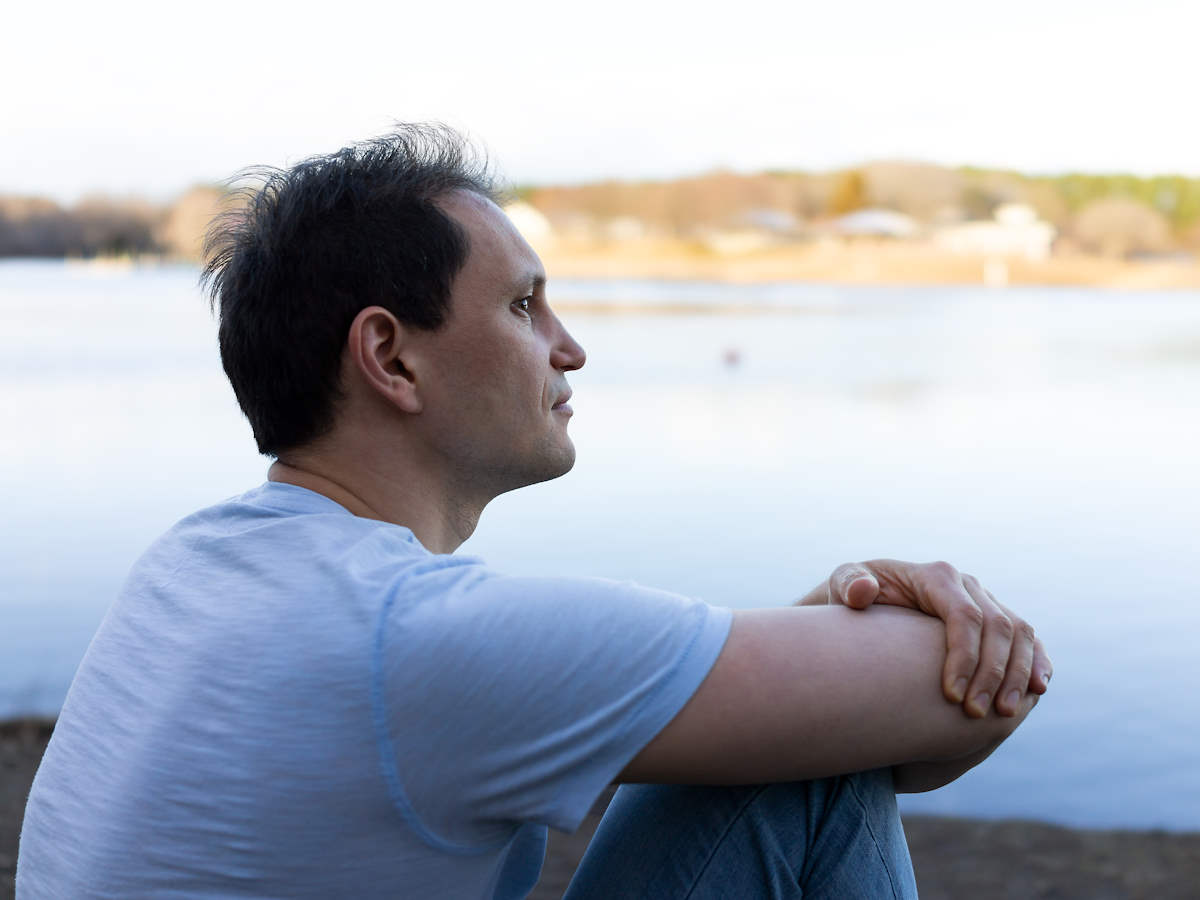Quick Summary
Men experience mental health disorders including depression, anxiety, PTSD, bipolar disorder, and substance use disorders, but often face barriers such as stigma, difficulty expressing emotions, and fear of appearing weak.
Early warning signs include changes in mood or energy, withdrawal from social situations, increased substance use, irritability or anger, changes in sleep or appetite, and risky behaviors.
Outpatient mental health programs offer flexible, cost-effective treatment using approaches like cognitive behavioral therapy, dialectical behavior therapy, and trauma-informed care while allowing men to balance work and family responsibilities.
Key Takeaways
- An estimated 6 million men live with depression at any given time, and more than 3 million men in the United States have panic disorder, agoraphobia, or other phobias.
- Men may express mental health struggles differently than women, often through anger, irritability, aggression, engaging in high-risk activities, or physical complaints without apparent medical cause.
- Common early warning signs include changes in mood or energy levels, withdrawal from friends and family, increased alcohol or drug use, changes in sleep patterns or appetite, and thoughts of self-harm or suicide.
- Outpatient mental health treatment offers flexibility to maintain work and family responsibilities while providing evidence-based therapies such as cognitive behavioral therapy, dialectical behavior therapy, and cognitive processing therapy.
Mental health issues can affect anyone, but men often face unique challenges when it comes to recognizing symptoms and seeking help. Between work and family responsibilities, social stigma, and stereotypes, men are adept at bottling up their emotions and pushing forward. However, avoiding these struggles only exacerbates them as time passes and makes them more difficult to manage and overcome in the long run.
It’s crucial for men to be aware of the early warning signs of mental health problems, but recognizing the potential symptoms of a mental health disorder is only the first step; seeking help through mental health treatment is the next. Start here to learn how to identify possible signs of mental health issues and find a supportive, effective mental health treatment program.
Common Mental Health Disorders in Men
Men experience all kinds of mental health disorders. Although women are more commonly diagnosed with mental health disorders, men experience mental illness, too. Millions of men are living with both diagnosed and undiagnosed symptoms of mental illness each year. There are a few prevalent mental health issues that men face.
Depression
Depression is one of the most commonly diagnosed mental health disorders in both men and women. An estimated 6 million men live with depression at any given time but it often goes undiagnosed and untreated. Signs of depression in men include:
- Continuous feelings of sadness or emptiness
- Irritability and anger
- Fatigue and loss of energy
- Difficulty concentrating or remembering things
- Changes in sleep patterns
- Loss of interest in hobbies or activities
Anxiety Disorders
Anxiety is another one of the most prevalent mental health disorders. Anxiety disorders include conditions such as generalized anxiety disorder, agoraphobia, panic disorder, social anxiety disorder, and specific phobias. More than 3 million men in the United States have panic disorder, agoraphobia, or other phobias. Signs of anxiety disorders in men include:
- Excessive worry or fear
- Irritability, frustration, or anger
- Restlessness and feeling on edge
- Difficulty controlling anxious thoughts
- Physical symptoms like rapid heartbeat or sweating
Post-Traumatic Stress Disorder (PTSD)
Post-traumatic stress disorder (PTSD) is a severe condition that impacts men almost as often as it does women. It is caused by a range of experiences, such as time spent in combat, witnessing or being the victim of an attack or assault, serious accidents, and more. PTSD in men can cause:
- Flashbacks or nightmares about traumatic events
- Avoidance of situations that trigger memories
- Hypervigilance and exaggerated startle response
- Emotional numbness or detachment
- Increased substance use
Bipolar Disorder
Bipolar disorder is a mental illness affecting a person’s mood, activity levels, and emotional regulation skills. It affects about 2.3 million adults in the United States and is equally diagnosed in men and women, but it may present differently in men. Some symptoms of bipolar disorder include:
- Manic episodes (increased energy, decreased sleep, risky behaviors)
- Depressive episodes (irritability, anger, substance use)
- More frequent manic episodes compared to women
- Later onset of depressive symptoms
Substance Use Disorders
Substance use disorders are a pressing problem among men in the United States. They have increasingly severe effects on both the men living with them and the family and friends who love and care for them. Signs of substance use disorders involve symptoms such as:
- Increased alcohol consumption
- Misuse of prescription medications
- Hiding alcohol or drug use
- Drinking or using drugs to cope with difficulties
Early Warning Signs of Mental Illness
Warning signs that suggest a potential mental health disorder can differ depending on the condition. For example, feeling overwhelmed or daunted by life may indicate depression, or feeling more nervous and on edge while in certain situations could be a sign of PTSD. Regardless of diagnosis, though, some general early warning signs to watch for include:
- Changes in mood, energy, or activity levels
- Withdrawal from friends and family
- Avoiding social situations or activities
- Poor performance at work or school
- Increased use of alcohol or drugs
- Changes in sleep patterns or appetite
- Unexplained physical symptoms (weight fluctuations, pains, etc.)
- Risky or impulsive behaviors
- Thoughts of self-harm or suicide
It’s important to note that these signs may manifest differently in men compared to women. For example, men are often more likely to express their mental health struggles through:
- Anger, irritability, or aggression
- Engaging in high-risk activities
- Increased focus on work or other distractions
- Turning to alcohol or drugs
- Physical complaints without apparent medical cause
Knowing what signs to look for is crucial because early intervention is key. The sooner men acknowledge and seek help for their mental health, the better the outcome will likely be.
Barriers to Seeking Help
Although mental health disorders are prevalent, barriers to treatment continue to be a problem. Men face traditional barriers to seeking help, such as limited time or financial resources, but also face some unique impediments.
Lack of Awareness
Men are more accustomed to pushing through troublesome difficulties and burying their struggles. This can lead to a lack of awareness or limited ability to recognize symptoms of a potential mental illness. They might attribute these feelings to stress or physical problems instead of a mental health problem.
Difficulty Expressing Emotions
Similar to a lack of awareness, men are also used to keeping their emotions to themselves. Years of emotional suppression create difficulty in expressing emotions and make it hard to articulate more challenging thoughts and feelings.
Stigma and Masculine Stereotypes
Regardless of the increased awareness of men’s mental health over the past decade, stigma and masculine stereotypes persist. Traditional norms or expectations of masculinity still make it difficult for men to acknowledge their need for help or to seek support.
Fear of Appearing Weak
The stigma and masculine stereotypes imposed on men also create a fear of being weak. There is still an ongoing misconception that seeking help is a sign of weakness which often prevents men from reaching out for help or seeking mental health treatment.
Seeking Support From Men’s Outpatient Mental Health Programs
Outpatient mental health treatment programs are an important tool for men experiencing mental illness. Programs like Into the Light in Redlands, CA use evidence-based treatment approaches and create individualized treatment programs tailored to each person’s needs. Some of the treatment approaches used in outpatient care include:
- Cognitive Behavioral Therapy (CBT): Cognitive behavioral therapy helps individuals identify and change negative thought patterns and behaviors.
- Dialectical Behavior Therapy (DBT): Dialectical behavior therapy teaches mindfulness, emotional regulation, and interpersonal effectiveness skills.
- Cognitive Processing Therapy (CPT): Cognitive processing therapy assists individuals in processing and reframing thoughts and feelings related to trauma.
- Trauma-Informed Care: Trauma-informed care addresses the impact of past traumas on current mental health and uses this understanding to inform the treatment path.
Outpatient mental health programs for men offer additional services to address men’s unique mental health needs, such as men’s support groups, anger management classes, family therapy, job counseling, nutrition coaching, and more. These specialized services help men develop healthy coping mechanisms, improve communication skills, and build a supportive network of peers facing similar challenges.
The Benefits of Outpatient Care for Men’s Mental Health
Outpatient mental health care offers numerous benefits for men experiencing mental illness.
Flexibility
Unlike inpatient or residential treatment, outpatient treatment is not a full-time treatment approach. Men can balance their outpatient program with their existing responsibilities, including work, family, and hobbies.
Privacy
Taking time away from work or other responsibilities usually requires some type of explanation. The flexible nature of outpatient treatment allows men to maintain privacy about treatment while receiving care.
Cost-Effective
Outpatient treatment programs are more affordable than their inpatient counterparts because they require fewer treatment hours and do not offer residential services.
Diverse Approaches
From individual therapy to group sessions to family counseling and more, outpatient care offers various approaches and is the most adaptable form of mental health care.
Outpatient Mental Health Services in Redlands, CA
If you’re a man in Redlands experiencing symptoms of a mental health issue, taking the first step towards seeking help can be challenging but it can save your life. Men in Redlands, CA, and the surrounding area can find help at Into the Light, an outpatient mental health treatment program for men. We provide a range of services for men with all types of mental health disorders.
You shouldn’t have to sacrifice time away from work or your family to receive the high-quality care you deserve. Our programs are tailored to meet your needs and are flexible to adapt to your schedule. Our experienced clinicians understand the specific challenges men face when dealing with mental health issues. We create a supportive, non-judgmental environment where men can feel comfortable expressing their concerns and working toward recovery.
Recognizing the early signs of mental health issues in men and seeking help through outpatient care is crucial for overall well-being. Into the Light offers comprehensive, tailored services to address the unique mental health needs of men in the community. By overcoming barriers to seeking help and utilizing available resources, men can take proactive steps towards better mental health and a more fulfilling life.
To learn more about our programs or find out how to get help, reach out to us by phone at (877) 446-8685 or submit an online contact form today.


